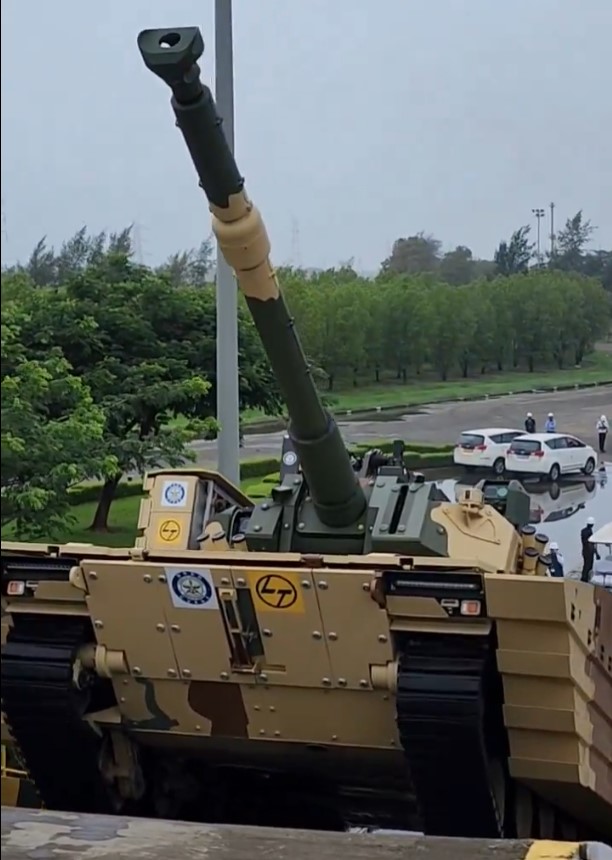SOURCE: RAUNAK KUNDE / NEWS BEAT / IDRW.ORG


The Defence Research and Development Organisation (DRDO) has announced a new project under its Technology Development Fund (TDF) scheme. This initiative seeks collaboration with an innovative Indian startup to develop Segmented Rubber Tracks (SRT) for India’s fleet of armoured fighting vehicles.
Traditionally, armoured vehicles rely on steel tracks for their robust performance. While these tracks offer undeniable strength and durability, they come with significant drawbacks. Steel tracks are bulky, adding unnecessary weight to the vehicle. Additionally, they generate significant noise and vibration during operation, leading to crew fatigue and potentially compromising stealth. Furthermore, steel tracks can cause damage to roads and other surfaces.
Segmented Rubber Tracks (SRT) offer a compelling alternative. By incorporating rubber with steel or composite cords, SRTs can overcome the limitations of steel tracks. Here’s how:
- Reduced Weight: SRTs can be significantly lighter than steel tracks, potentially reducing the overall weight of the vehicle by 40% to 50%. This translates to better fuel efficiency, improved manoeuvrability, and potentially increased payload capacity.
- Enhanced Comfort: Rubber’s inherent dampening properties significantly reduce noise and vibration during operation. This translates to a more comfortable ride for the crew, reducing fatigue and potentially improving mission effectiveness.
- Gentler on Infrastructure: Unlike steel tracks, SRTs are far less damaging to roads and other surfaces, minimizing collateral damage during deployments.
The DRDO’s project aims to develop SRTs specifically designed for Indian armoured vehicles weighing between 14 and 20 tons. These tracks should meet the following key performance parameters:
- Minimum Width: 300 mm (to ensure proper coverage and stability)
- Track Pitch: 140 mm (to ensure compatibility with existing sprocket designs)
- Weight Reduction: At least 30% lighter than comparable steel tracks
- Durability: A minimum operational life of 3,000 kilometres
- Temperature Resilience: Capable of functioning in extreme temperatures ranging from -40°C to +55°C
NOTE : Article cannot be reproduced without written permission of idrw.org in any form even for YouTube Videos to avoid Copy right strikes. Websites doing illegal reproductions will get DMCA and Legal Notices.